With winter storms on the way, this month we’re going to talk about fossil fuel generator maintenance. Your generator is a critical part of your off-grid infrastructure and there’s nothing worse than firing up the generator when you really need it only to have it sputter and die. To make sure that doesn’t happen to you, it’s important to test your generator regularly and make sure you’re following the recommended maintenance schedule.
Every generator comes with an owners manual and a maintenance schedule. Following the manufacturer’s maintenance schedule will prolong the life of the generator and ensure it’s ready when you need it. Maintenance tasks might need to be done monthly, bi annually, annually and/or every so many years. They can also be based on hours of use. The schedules vary by manufacturer and model, so you’ll need to check your owners manual to find out what your unit specifically requires.

In general, the following tasks are typical of what you’ll need to do to keep your generator in good condition, depending on what type of generator you have:
Propane Generators
1. Regularly inspect the propane tank for leaks and ensure it is securely connected.
2. Check the fuel lines for any signs of damage, wear, or leaks.
3. Clean or replace the air filter as recommended by the manufacturer.
4. Change the oil and oil filter according to the manufacturer's guidelines.
5. Keep the generator clean by removing any dust or debris from the exterior.
6. Test the battery and charger regularly to ensure proper functioning.
7. Schedule a professional inspection of the entire generator system annually or based on the maintenance schedule.
Natural Gas Generators:
1. Inspect the natural gas supply line for any leaks or damage.
2. Clean or replace the air filter as recommended by the manufacturer.
3. Change the oil and oil filter as per the manufacturer's guidelines.
4. Keep the generator clean by removing any dust or debris from the exterior.
5. Test the battery and charger regularly for proper operation.
6. Schedule a professional inspection of the entire generator system annually or based on the maintenance schedule.
Gasoline Generators:
1. Store gasoline in approved containers in a well-ventilated area away from ignition sources.
2. Follow the manufacturer's recommendations for fuel stabilizer usage if the generator will be stored for an extended period.
3. Check the fuel level regularly and refill as needed.
4. Change the oil and oil filter as per the manufacturer's guidelines.
5. Clean or replace the air filter as recommended by the manufacturer.
6. Test the battery and charger regularly for proper operation.
7. Schedule a professional inspection of the generator system annually or based on the maintenance schedule.
Diesel Generators:
1. Regularly check the fuel level and refill as needed.
2. Change the oil and oil filter according to the manufacturer's guidelines.
3. Clean or replace the air filter as recommended by the manufacturer.
4. Test the battery and charger regularly to ensure proper functioning.
5. Keep the generator clean by removing any dust or debris from the exterior.
6. Schedule a professional inspection of the entire generator system annually or based on the maintenance schedule.
Follow these suggestions and the manufacturer’s recommendations and you’ll have power when you need it regardless of the weather!
Have questions or want recommendations for a new generator system? Get in touch with Ryan at (905) 818-7364 or ryan@canadianoffgriddepot.com and he’ll be glad to help.







